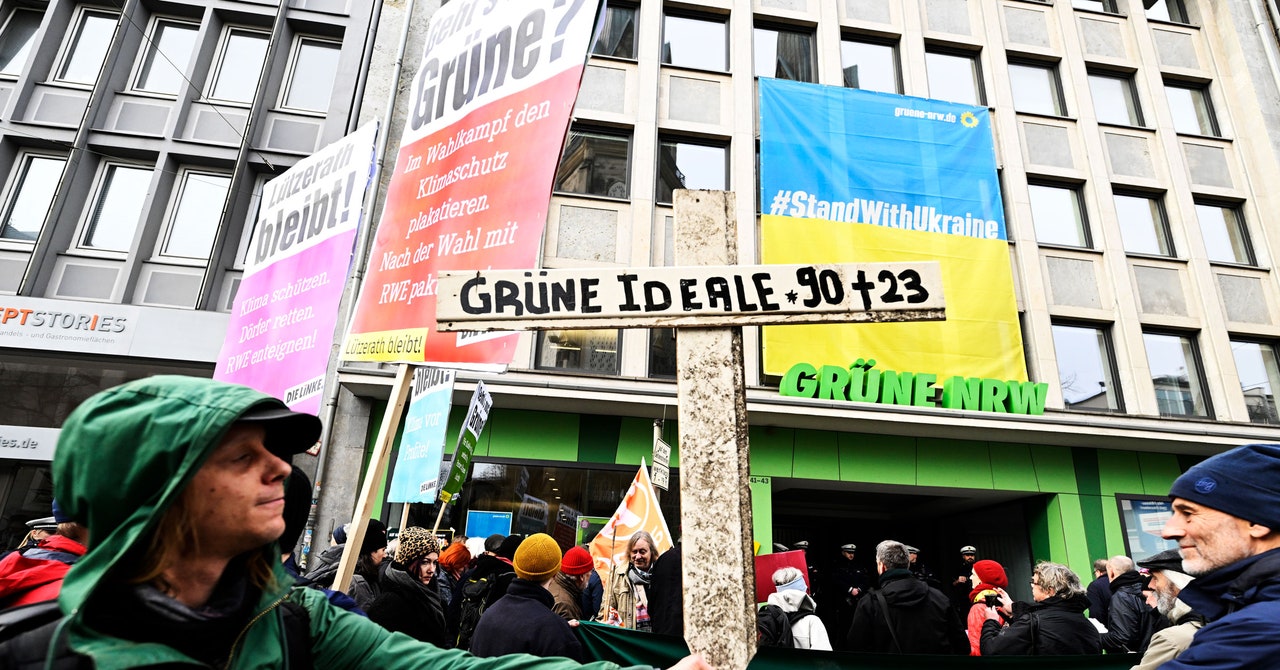That pragmatism was fully exposed during the energy crisis in Europe, when Habeck was forced to make uncomfortable compromises. When Russia cut off gas supplies to Germany, Habeck ordered the country’s coal-fired power plants to be put back into operation. When utility company RWE requested that coal be extracted under the West German village of Lützerath, arguing that it was necessary to keep Germany’s lights on, Habeck agreed. In return, RWE would have to end coal use eight years ahead of schedule, by 2030.
Activists did not consider this a worthy compromise. “I was shocked,” says Theo Schnarr, a doctoral student and environmentalist in the town of Greifswald. “The coal in that area is in itself enough to burn all of our CO2 Schnarr watched Lützerath’s videos and said he understood their frustration. He also felt deeply saddened. Most importantly, Lützerath clarified how disillusioned he was with mainstream politics – regardless of which party is in charge. “Lützerath has so many points demonstrated so clearly,” he says. “Policymakers don’t make decisions for people, but for industry.”
The 32-year-old is one of a growing group of activists clinging to roads across the country, sparking controversy and miles of traffic jams. He has been an environmental activist for only a year and has already spent 10 days in jail for blocking roads. “We are pointing out with our protests that our government is incapable of dealing with this crisis,” said Schnarr, who is a member of the environmental group Last Generation, a group that emerged in Germany around the same time as the Green Party in the government came. “Scientists tell us we have about three years to take effective action,” says Schnarr. That means he sees the government currently in power as the country’s last chance to take action.
When green parties enter government, it’s normal for environmental groups to radicalize in response, said Daniel Saldivia Gonzatti, a protest researcher at the Berlin Social Science Center, a research institute. “The last generation [protest group] formed as a by-product of the Green Party’s success in entering government, as now only a radical environmental movement like her was actually able to push a radical pro-environmental agenda further.
Since the Finnish Green Party became the first European Green Party to participate in a European government in 1995, Green parties have transformed from radical outsiders to pillars of government. They now form a coalition in six EU countries: Austria, Belgium, Finland, Germany, Ireland and Luxembourg.
“Greens as key coalition partners seem to be an increasingly common story in European politics,” says Mitya Pearson, who researches environmental politics at King’s College London. Germany’s green politicians are not the only ones forced to make decisions that alienate environmentalists. Austrian Green Energy Minister Leonore Gewessler also suggested replacing Russian gas with coal to get through the winter – a proposal that was generally rejected by parliament. In January, traffic in Vienna was also halted as activists blocked roads for two weeks – threatening more protests if the government did not do more to combat the climate crisis.
Tensions between green parties and activists are likely to continue as a feature of green party coalitions across Europe, Pearson says. “The question will be how pragmatic [activists] willing to be,” he says. “Would they tolerate some pragmatic energy policy decisions if greens can show they are accelerating climate policy in other ways?”
Dresen, the activist, says he is not against compromise, but against the party making deals with fossil fuel companies in backrooms. “The biggest problem is that we don’t have a green opposition,” he says. Without it, activists fill that role themselves, meaning that under green governments, climate protests are likely to increase — not decrease. It is the protester’s role to keep pushing, says Gonzatti. “The environmental movement will never say: okay, great, this is enough.”
This article first appeared in the May/June 2023 edition of WIRED UK

